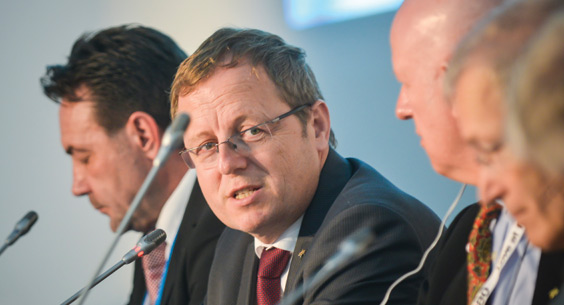Germany's DLR aerospace research centre has outlined its vision of air and space technology development geared to "society's needs" for safe, clean and affordable mobility.
Speaking at ILA, chairman Johann-Dietrich Wörner described knowledge acquired by DLR as "Germany's asset for tomorrow" in regard to "next-generation" research on "energy transition".
 |
|---|
Johann-Dietrich Wörner Copyright: BillyPix |
Wörner says a new DLR-NASA agreement would research air traffic management, including techniques to make ground handling more efficient. Frankfurt airport alone, he notes, could save an estimated 30 million tonnes of jet fuel a year by cutting each aircraft's taxi time by five minutes.
Regarding space technology, DLR is developing a Martian heat probe, an electro-mechanical mole designed to dig several metres under the surface trailing sensors to measure the soil's temperature profile and thermal conductivity. The H3 probe will fly to Mars with NASA's InSight sub-surface monitoring mission in 2016.
DLR researchers are also preparing an ambitious mission - DEOS - to carry out in-orbit servicing of damaged or inoperative satellites. The plan also calls for spacecraft capable of de-orbiting defunct satellites to reduce the growing problem of "space junk", which causes millions of dollars of damage a year to orbiting assets and threatens to leave some valuable orbits unaccessible.
Source: Flight Daily News


























